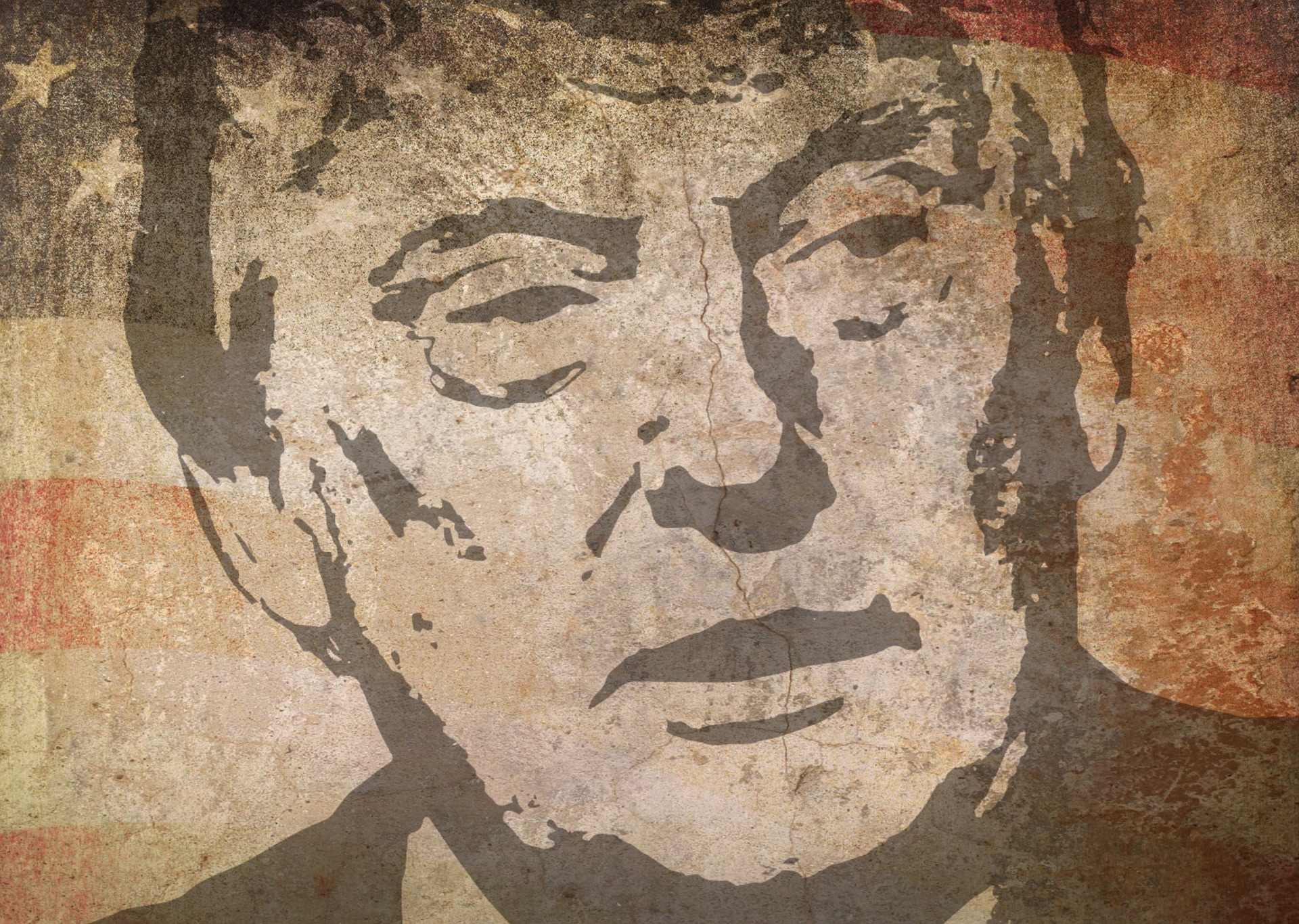I would say that the 2016 election provides a kind of blueprint for the future of the Republican Party, but that it is in need of modification. It is hard not to view it as a kind of blueprint, because it did work: the Party won the presidency and kept control of Congress. On the other hand, a political party that wishes to govern effectively (especially over time) needs to aspire to winning the popular vote, which in the case of the presidency the Republican Party did not quite do. It seems to me that the Republican Party needs to have a populist element, some appeal to working class voters, if it is to be nationally competitive. To this extent the issues that Trump brought in were helpful. At the same time, Trump’s highly combative approach and personal background probably turned off some voters who might otherwise have been moved by this message. So perhaps the blueprint for the future will be a kinder and gentler Trumpism. And Trump himself might provide this as he grows into the presidency.
CARSON HOLLOWAY

You raise an important point. I think you are correct that the GOP cannot build a winning coalition without a populist element. But I wonder what a “kinder and gentler Trumpism” will look like. Does this just mean less bombastic rhetoric from Trump, or will it require a genuine change in policy? If the latter, what elements of Trump’s platform can he jettison without being accused of betraying the people who put him into office? In theory, backtracking on his anti-immigrant, anti-Muslim positions makes sense if Trump wants to make greater inroads into non-white communities, but he risks losing support from the people who put him in office.
And when it comes to economic populism, Congress can still limit Trump’s ability to transform the GOP. Trump’s election did not fundamentally alter Paul Ryan’s policy agenda. Ryan has never shown interest in immigration restrictions or infrastructure spending. Trump has no interest in privatizing Medicare. I remain unconvinced that Trump and the Republican Congress will be able to agree on a shared bundle of policy priorities.
GEORGE HAWLEY

Thanks, George. On substance, I think Trump has left himself the room to moderate his stances, and that he can do this to some extent without alienating his own supporters. For example, he has certainly talked very tough on illegal immigration, but he has also signaled flexibility on just how far he would go. And I think that his supporters will tolerate moderation and compromise that they can view as being done from a position of strength. That is, if Trump takes serious steps to stop ongoing illegal immigration, and if his administration deports a lot of criminal aliens, his supporters will not mind too much if he deals in a gentler way with illegal immigrants who have been in the country a long time and who have been otherwise law abiding.
You make a good point about the potential for conflict between Trump and the Republican Congress. There is certainly a big gulf in worldview and policy preferences between Trump and Paul Ryan. Still, I expect they will find ways to work together, because it will be in most people’s interests to do so. After all, most of the Republican House members represent districts that Trump won, so it won’t be in their interest to openly flout him on things that are central to his administration’s agenda. This still leaves the usual problem of things getting bogged down in the Senate, however.
There is one other thing that we have not discussed that pertains to Trumpism and the future of the Republican Party: foreign policy. Trump’s instinct is obviously to stay out of foreign wars unless there is a direct American interest that must be protected. He does not believe in getting into wars for ideological or altruistic motives, like promoting democracy. I think this approach would serve the Republican Party well, but there are still many people in the Party who want a more interventionist approach, so there will be some tension or conflict between Trump and them.
CARSON HOLLOWAY

Yes, there is definitely still a tension within the GOP when it comes to America’s role in the world. And Trump’s words and cabinet picks over the last few weeks have sent mixed signals. But this election cycle may have opened a door for a foreign policy realignment. I was surprised when Trump easily won the South Carolina primary just days after condemning both the Iraq war and George W. Bush. It turned out that Republican voters really did have war weariness, and were no longer inclined to defend the last GOP president’s policies.
It is also interesting, and perhaps even more significant, that the anti-war left scarcely even existed this year, especially after Sanders dropped out. Clinton was endorsed by key neoconservatives, including some who were instrumental in pushing the invasion of Iraq, yet the Democratic Party did not apparently think this was a problem. And since Election Day, the rhetoric some progressives have used when discussing Russia could have been lifted from old John Birch Society newsletters.
GEORGE HAWLEY

It would make sense to me that there would be a realignment on foreign policy, but also on questions of trade and immigration. One could put all three under the broad heading that Trump emphasized in this election: the question of “globalization” or “globalism versus nationalism.” It seems to me that globalization or globalism is a necessarily controversial process, because it is not equally in everyone’s interests and not equally consistent with everyone’s values. Given that fact, it would make sense that in a democratic nation with a two party political system there would be one party generally in favor of globalism and one that is generally skeptical of globalism. It seems like we have not had that, however, for the last couple of decades. Rather, both parties have been very much in favor of free trade, of a kind of pro-democracy foreign policy, and high levels of immigration. That kind of consensus probably could not have been maintained indefinitely, and Trump finally came along and exploited the divisions that existed on these questions but that the parties had tried to paper over.
CARSON HOLLOWAY

You are hinting at something that may be one of the more important political developments in the coming years. I wonder if the traditional liberal vs. conservative divide in American politics even makes sense anymore. The coalition that conservatives put together in the 1950s and 1960s (the free-market economists, religious traditionalists, and Cold Warriors) was always loosely connected, but there was a logic to their union. I question whether that manifestation of conservatism still makes sense. When was the last time big business sided with cultural traditionalists on an issue that mattered? Can the coalition even hold together at all without a shared fear of the Soviet Union?
The left has problems of its own, and for similar reasons. At least some contemporary liberals still view politics as being fundamentally about class struggle. How does that fit with a world where corporate America and the Democratic Party are not really at odds? No one is pushing the cosmopolitan, tolerant, and globalist worldview as aggressively or effectively as the biggest names on Wall Street.
I think you are right that a divide between nationalism and globalism makes sense today, and may be one of the more important fault lines in the United States. But American politics is not currently equipped to work along that dividing line. Part of it may be generational. A case can be made that politics is a lagging indicator of where the culture is going. The people at the top in both parties and in the mainstream intelligentsia developed their ideological moorings in a different era, and they are not likely to change their views anytime soon. Trump’s victory seems like it will hasten such a change, but such a realignment will not happen overnight.
GEORGE HAWLEY

I agree that such a realignment, if it happens, won’t happen overnight. On the one hand, it makes sense for the reasons we have already discussed: there is a kind of political market for skepticism about globalization. And we see a similar movement in opposition to globalization developing in other western nations. On the other hand, there are many other factors that tend to work against this opposition. In the first place, as you noted, many of the most prominent people in American politics and opinion-making are in favor of some form of globalization because of solid ideological commitments that they formed when they were coming of age politically. Those are hard to unlearn and for many people are never unlearned. Also, many of the people who are most in favor of globalization have a lot of money to contribute to politicians, thus making the latter more sympathetic to the cause—and more resistant to nationalism or globalization skepticism.
This brings us back to the rather unique position of Trump himself. It is much easier for him than for the average Republican politician to maintain opposition to globalism. In the first place, he seems to be no kind of ideologue at all, so he has no deep moral commitment to globalism or cosmopolitanism. In the second place, he is a billionaire, so he can, when push comes to shove, adopt positions that he thinks are most popular with voters, without concerning himself with what large donors desire. In the third place, he is a national celebrity with more than 20 million Twitter followers, so he has a ready-made way to communicate with large numbers of people without having to raise money (for paid media) or rely on, and make concessions to, organs of free media that are themselves usually more in favor of globalism. No other politician has all of these advantages, so it remains to be seen whether they follow his path.
But it might be possible. Dave Brat beat Eric Cantor with very little money. And Trump raised a great deal of money from small donors during his presidential campaign, so other Republicans who take up the nationalist flag might be able to finance a campaign in the same way, even without being billionaires themselves.
CARSON HOLLOWAY

The issue of small donors is critical. I am not sure the conservative movement would have survived if Richard Viguerie had not collected Barry Goldwater’s donor list and subsequently created the conservative direct-mail fundraising behemoth. Conservatives recognized early on that they were playing a long game, and built powerful institutions to help them win it. Those who wish to further push Trump’s agenda would be wise to follow a similar strategy. But they are behind.
When Goldwater conquered the Republican Party in 1964, he was working with a preexisting conservative movement, with a coherent ideology, respected publications, activist organizations, and well-known intellectuals. Trump’s brand of right-wing politics does not have any of those things, at least not yet. Trumpism conquered the G.O.P. and the Electoral College before it really developed as a movement, and now his supporters must scramble to catch up. We will see if they are able to do so.
Those who wish to return to the old conservative vs. liberal status quo (however outdated it may be) still have a great deal of power and influence. If Trump’s opponents on the left can successfully obstruct his agenda, and mainstream conservatives can keep Congress focused on their traditional issues, the next few years may not prove very disruptive.
Despite its recent wins, the populist, civic nationalist ideology that Trump represents may not become a permanent part of American politics. In a few years, Trump may be viewed as his movement’s Hannibal, and the 2016 election as his Cannae. Yes, Trumpism won a stunning, unexpected victory. And it was a victory that only Trump could have won. But will he know what to do with it? By the end of the year, we will have an answer.
GEORGE HAWLEY



